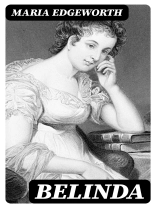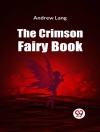In her novel 'Belinda, ’ Maria Edgeworth intricately weaves a narrative that explores the intersection of gender, society, and individual desire in early 19th-century England. The story follows the titular character as she navigates the complexities of love and virtue, imbued with a keen sense of moral philosophy that reflects the broader Romantic literary context. Edgeworth employs a richly descriptive prose style, characterized by sharp dialogue and incisive character studies, to present a nuanced portrayal of social expectations and personal agency. Through Belinda’s journey, readers are invited to ponder the implications of inheritance and personal choice in a society rife with rigid conventions. Maria Edgeworth, an influential figure in the development of the novel as a literary form, utilized her own experiences and keen observations of social dynamics to inform her writing. Raised in Ireland during a tumultuous period, Edgeworth was profoundly aware of the issues of class, gender, and education. This background not only shaped her worldview but also inspired her to create complex characters who often grapple with societal constraints, making her work a reflection of her progressive beliefs. 'Belinda’ is a compelling read for those interested in the evolution of the novel and its critique of societal norms. Edgeworth’s insightful commentary and character-driven narrative provide a rich tapestry that resonates with contemporary readers. As such, it remains a significant work that merits attention within the canon of early feminist literature.
O autorze
Maria Edgeworth (1768-1849) was a prolific Anglo-Irish writer of adults’ and children’s literature. She was one of the earliest realist writers in children’s literature and was a significant figure in the evolution of the novel in Europe. Born on January 1, 1768, in Black Bourton, Oxfordshire, Edgeworth was the second child of Richard Lovell Edgeworth and Anna Maria Edgeworth, née Elers. Maria was greatly influenced by her father, a noted inventor, educationist, and member of the Lunar Society of Birmingham, giving her access to many of the leading intellectual lights of her time.
Educated by her father at their estate, Edgeworthstown, in County Longford, Ireland, Maria Edgeworth collaborated with him on several educational works and took up the management of the family estate during the Irish famine, where she played an active role in relief efforts. Her writing career began in earnest with the publication of 'Castle Rackrent’ in 1800, an innovative work with its use of regional dialect and an unreliable narrator that influenced Sir Walter Scott and the development of the regional novel. Another notable work, 'Belinda’ (1801), is an early example of the novel of manners, and it stands out for its nuanced portrayal of women’s place in society and hints at the advocacy of interracial marriage, which was progressive for its time. Her literary style blended sharp narrative wit with social criticism and varied from satirical romances to educational texts. Edgeworth was a significant forerunner for later nineteenth-century writers such as Elizabeth Gaskell and George Eliot, and her work remained influential long after her death on May 22, 1849.












